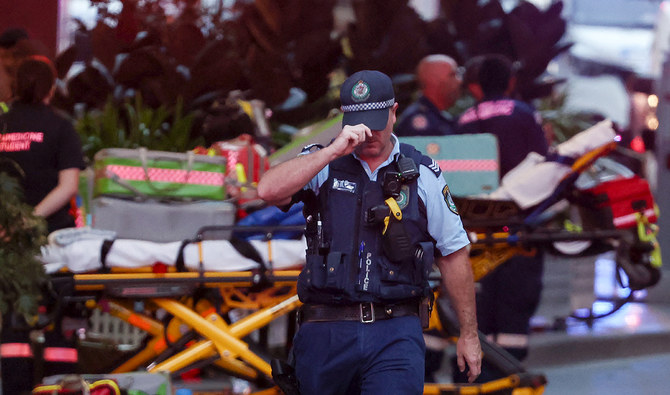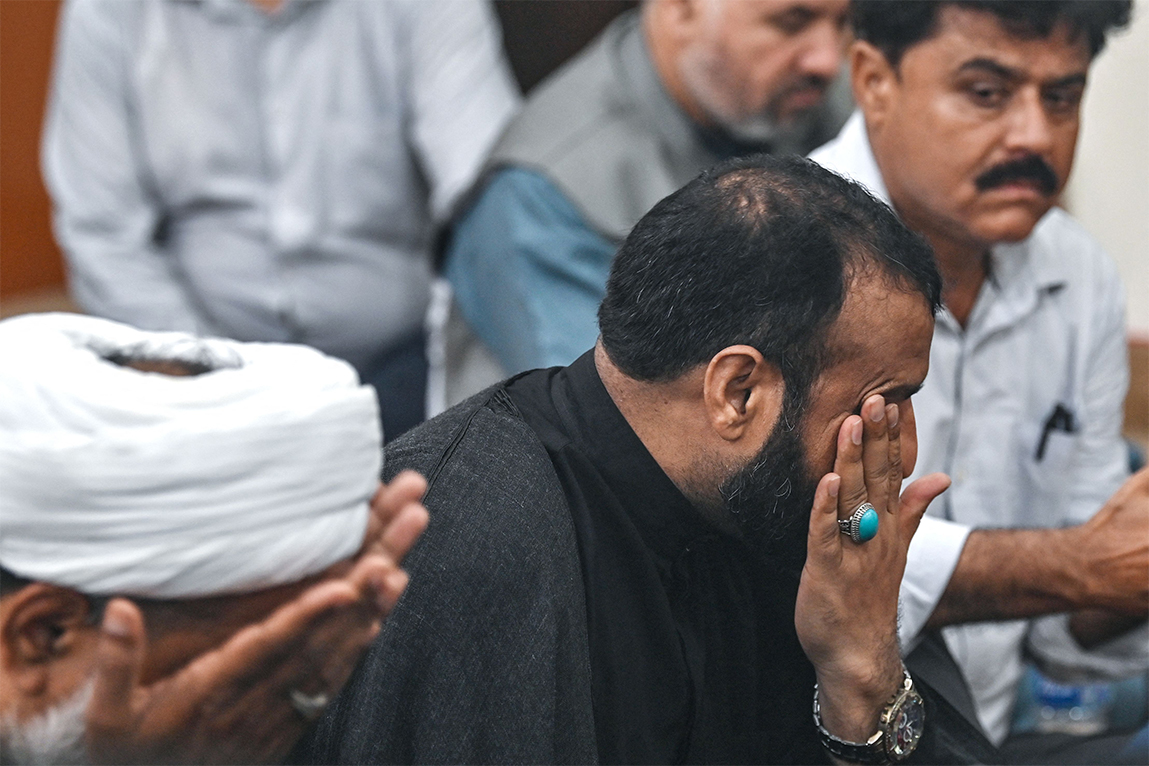ISLAMABAD: Pakistan’s foreign office said on Sunday it was “deeply saddened” and “shocked” by the mass stabbing at a Sydney shopping center a day earlier which claimed six lives, including that of a Pakistani security guard.
An attacker fatally stabbed six people on Saturday afternoon at the busy Westfield Bondi Junction shopping center in Sydney.
Five of the six victims killed were women, while eight people, including a nine-month-old baby, were taken to hospital with stab wounds, New South Wales Police Commissioner Karen Webb told a press conference.
The only male victim who was killed in the attack was identified as 30-year-old Faraz Tahir from Pakistan, who worked at the mall as a security guard.
“We are deeply saddened and shocked over the terrible and tragic events at Westfield Bondi Junction in Sydney, Australia on Saturday,” the foreign office said on social media platform X.
“Our thoughts and prayers are with the families of those who have lost their lives.”
Webb said during a press conference on Saturday that police did not believe the attack was “terrorism-related” Webb while Australian Prime Minister Anthony Albanese said there was no indication yet of the man’s motive.
Australia has some of the world’s toughest gun and knife laws, and attacks such as the one on Saturday are rare.

















